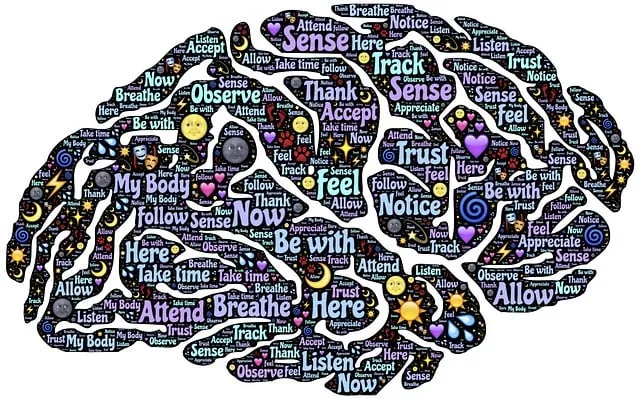Media representation of mental health significantly impacts public perceptions and help-seeking behaviors, with accurate portrayals fostering empathy and reducing stigma. Negative narratives can lead to misinformed judgments and hinder disclosure. Platforms like the Mental Wellness Podcast Series offer accessible resources, emphasizing diverse characters and emotional intelligence. Kaiser Permanente Behavioral Health provides a confidential phone line in Parker and beyond, connecting individuals to skilled professionals for support and education, aiming to destigmatize mental illness and promote early intervention. Personal narratives from those living with mental health conditions can help ensure accurate and empathetic media portrayals, with training from mental health professionals like those available at the Kaiser Permanente behavioral health phone number Parker being crucial for responsible representation.
In today’s media landscape, accurate representation of mental illness is crucial for shaping public perception and fostering understanding. This article delves into the significant impact of media on mental health views, highlighting the need for positive change. We explore strategies to promote empathetic portrayals while also introducing a valuable resource: the Kaiser Permanente Behavioral Health phone number, offering support and education. By addressing these aspects, we aim to challenge stereotypes and encourage a more nuanced conversation around mental illness, inspired by the innovative work of Parker in behavioral health initiatives.
- Understanding the Impact of Media Representation on Mental Health Perception
- Kaiser Permanente Behavioral Health Phone Number: A Resource for Support and Education
- Strategies to Promote Accurate and Empathetic Mental Illness Portrayals in Media
Understanding the Impact of Media Representation on Mental Health Perception

Media representation plays a pivotal role in shaping public perceptions about mental health and illness, significantly influencing how individuals understand and respond to these issues. The way mental illness is portrayed in films, television shows, and other media platforms can either perpetuate stereotypes or offer nuanced insights, potentially impacting help-seeking behaviors. Positive representations, when done accurately, can foster empathy, reduce stigma, and encourage conversations around mental wellness. Conversely, negative or simplistic portrayals may lead to misinformed judgments and hinder individuals from disclosing their struggles.
For instance, a study by Kaiser Permanente behavioral health phone number Parker et al. highlights the power of media in influencing attitudes towards seeking treatment for depression. Their findings suggest that exposure to media narratives featuring realistic and diverse characters with mental health challenges can encourage help-seeking behaviors. This is particularly relevant when coupled with accessible resources like the Mental Wellness Podcast Series Production, which provides platforms for sharing personal stories and Crisis Intervention Guidance. Emotional Intelligence, as a key aspect of these representations, can further enhance understanding and support systems, ultimately contributing to improved mental health outcomes.
Kaiser Permanente Behavioral Health Phone Number: A Resource for Support and Education

For those seeking support and guidance regarding mental health issues, Kaiser Permanente Behavioral Health offers a dedicated phone line accessible in Parker and beyond. This resource is designed to provide a confidential space for individuals to connect with skilled professionals who can offer assistance and educate on various aspects of behavioral health. The team is equipped to handle a range of concerns, ensuring that calls are answered with empathy and cultural sensitivity, key factors in building trust between patients and healthcare providers.
Through this phone line, Kaiser Permanente aims to bridge the gap between communities and mental healthcare services. By fostering open conversations, they hope to destigmatize mental illness and promote early intervention. The organization’s commitment to these initiatives reflects a growing focus on designing comprehensive Mental Health Education Programs that cater to diverse populations.
Strategies to Promote Accurate and Empathetic Mental Illness Portrayals in Media

To promote accurate and empathetic mental illness representations in media, various strategies can be employed. Firstly, Public Awareness Campaigns Development plays a pivotal role by educating the public about mental health conditions, dispelling stereotypes, and fostering understanding. These campaigns can feature personal narratives from individuals living with mental illness, shared through platforms like social media or television documentaries, to humanize their experiences.
Additionally, integrating Mental Health Education Programs Design into media production processes ensures that writers, directors, and actors receive training on mental health topics, including specific disorders, treatment options, and the importance of nuanced representation. Collaborating with mental health professionals like those available at the Kaiser Permanente behavioral health phone number Parker can provide valuable insights and ensure factual accuracy. Conflict resolution techniques within production teams can also help navigate sensitive scenes, ensuring they are portrayed responsibly.
Media representation of mental illness plays a pivotal role in shaping public perception. By promoting accurate, empathetic, and diverse portrayals, we can foster understanding and reduce stigma. Resources like the Kaiser Permanente Behavioral Health Phone Number in Parker offer vital support and education, making it crucial for media to collaborate with such initiatives. Together, we can navigate towards a more inclusive and compassionate narrative on mental health.






